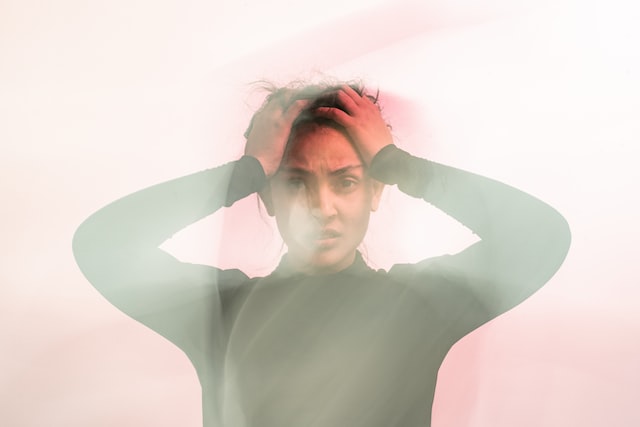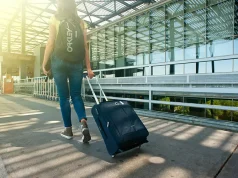
Since the lifting of COVID-19 restrictions, travel has been on the rise, even soaring to pre-pandemic levels. Whether it’s to reunite with friends and family, enjoy that long-awaited vacation, take advantage of airline miles, or simply just to get away, travel is back — and along with it can come the unexpected.
From holiday travel delays to computer breakdowns to airline staff shortages to just the mere thought of planning and being away from home, anything can make traveling an anxious experience. But that doesn’t have to be the case. If you’re planning for a trip and feeling some travel anxiety, read on for five tips to make traveling a little less stressful and a whole lot more enjoyable.
1. Plan for your travel
Planning for unexpected scenarios can give you peace of mind knowing that you’ve thought through some situations that could happen. This is not intended to frighten you; it’s so that you are prepared if something goes a little off track. For example, have a back up plan if your flight gets canceled or delayed and you find that you have to get on the road. If you can drive to your destination, your backup plan might be to rent a car and drive. Or, you can take a bus or train if that option is available.
If you’re traveling abroad, for example, you might want to be sure that you have enough money for the length of your trip and know where to exchange local currency. Plan ahead so you can find the nearest currency exchange location or bank, or know where you can go cashless.
2. Know what causes you stress
Knowing what causes you to be anxious can help you address those stressors. For example, some things that might cause travel anxiety can include:
- Turbulence
- Driving through bad weather
- Crowds
- Experiencing or fear of experiencing a panic attack
- Getting lost in an unfamiliar place
Everyone has moments of anxiety at some point. These temporary feelings of anxiety are different from an anxiety disorder. When someone has an anxiety disorder, it impacts their ability to function day-to-day. A mental health professional can work with you to identify sources of stress and anxiety and help you develop ways to cope with them.
3. See things from a different perspective
If you’re caught in an unexpected situation, you can try to see things in a different light. For example, let’s say you take a wrong turn while returning to your hotel. Your maps app sends you on a different route to get back to the hotel. On the way, you stumble on the area’s best kept secret — a cozy corner cafe. Had you not taken the wrong turn, you would not have had the most amazing cup of joe that morning.
Sometimes, it’s not always easy to view things in a different light. One of the benefits of talk therapy is that a mental health professional can help you see things from a different perspective to manage and cope with stress and other concerns.
4. Take care of yourself
Your physical well-being is connected to your mental well-being, and vice versa. So while traveling, make sure that you drink enough water, eat a balanced diet, and make time for physical activity. Also, before and during travel, finding ways to stay focused and relaxed — such as deep breathing, mindfulness exercises, and meditation — can help you refocus and find balance.
5. Plan for your return
Just as you plan ahead for your travel, you can also plan for your return home. By making sure that things at home are taken care of while you’re away, you’ll be able to ease into your daily life much easier when you return. This can include:
- Asking a neighbor to pick up packages left on your doorstep
- Putting a temporary hold on your mail or deliveries
- Putting outdoor and indoor lights on a timer
- Setting aside time to rest after your travels
What does travel anxiety actually look like?
Travel anxiety is different from one person to another. Some people might experience it while they’re planning for a trip. Others might feel it right before a trip or during the trip. Add any sort of travel changes or unexpected events, and anxiety can be heightened. Symptoms of travel anxiety can include:
- Being unable to sleep or having fitful sleep up to the travel date
- Excessive worry and concern about travel
- Feeling restless or on edge
- Being easily irritated and short-tempered
- Having panic attacks
- Feeling self conscious and judged by others
- Chest pain or difficulty breathing
- Diarrhea, shaking, or sweating
How do you know if your anxiety is temporary or something more?
Feeling anxious about travel is common especially if you have other forms of anxiety. Traveling can also be more stressful if you have family members who have anxiety, you take certain medicines, or if you have physical health conditions that could affect your travel.
Being anxious from time to time is typical, but when anxiety interferes with your daily life, it can be a problem. According to the Anxiety and Depression Association of America, anxiety disorders are a common mental health condition, affecting nearly 40 million adults in the U.S.
When should you seek help?
If being anxious about travel prevents you from traveling and taking part in social activities and daily life, and it’s not something that you can deal with on your own, you might want to consider talking to a mental health professional. They can evaluate if there are any other health concerns behind your anxiousness and help you put together a plan for treatment if needed. That way, you’re able to do what you want and need to do, and make travel an exciting and rewarding experience.





